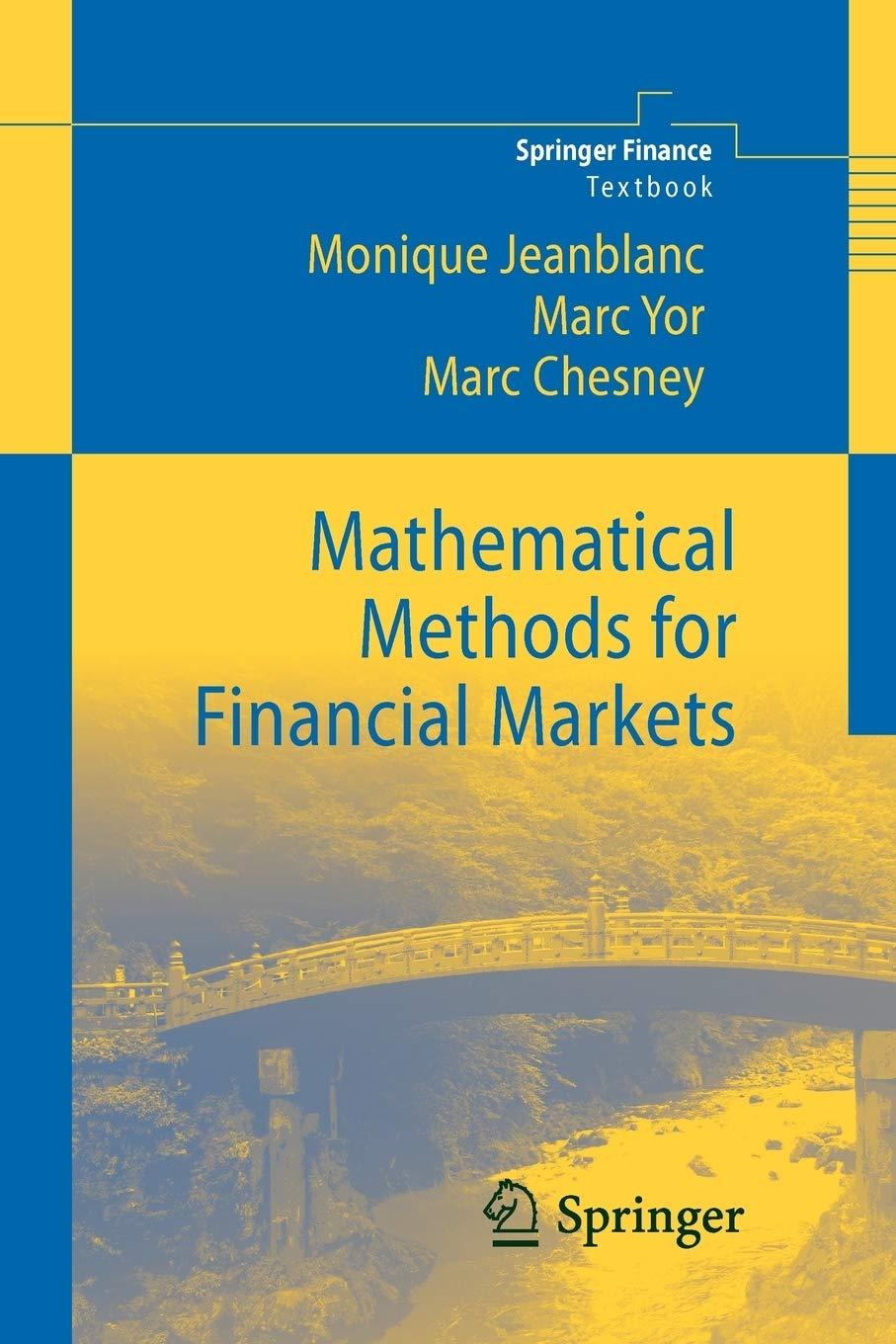There are many examples of relations between prices which are obtained from the absence of arbitrage opportunities
Question:
There are many examples of relations between prices which are obtained from the absence of arbitrage opportunities in a financial market. As an exercise, we give some examples for which we use call and put options. The reader can refer to Cox and Rubinstein [204] for proofs. We work in a market with constant interest rate \(r\). We emphasize that these relations are model-independent, i.e., they are valid whatever the dynamics of the risky asset.
- Let \(C\) (resp. \(P\) ) be the value of a European call (resp. a put) on a stock with current value \(S\), and with strike \(K\) and maturity \(T\). Prove the put-call parity relationship
\[C=P+S-K e^{-r T} .\]
- Prove that \(S \geq C \geq \max (0, S-K)\).
- Prove that the value of a call is decreasing w.r.t. the strike.
- Prove that the call price is concave w.r.t. the strike.
- Prove that, for \(K_{2}>K_{1}\),
\[K_{2}-K_{1} \geq C\left(K_{2}\right)-C\left(K_{1}\right)\]
where \(C(K)\) is the value of the call with strike \(K\).
Step by Step Answer:

Mathematical Methods For Financial Markets
ISBN: 9781447125242
1st Edition
Authors: Monique Jeanblanc, Marc Yor, Marc Chesney





